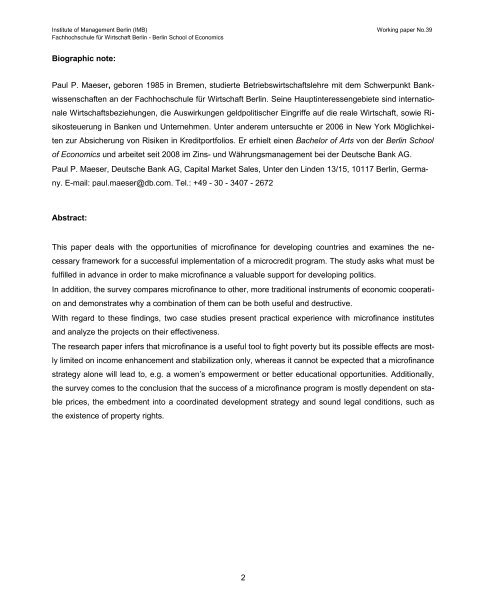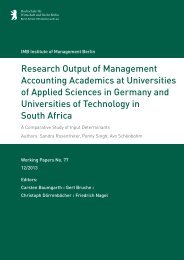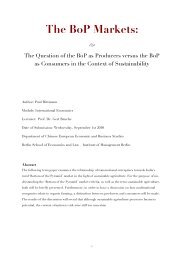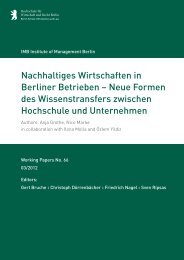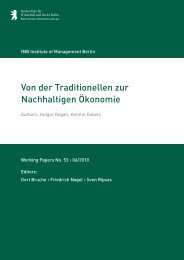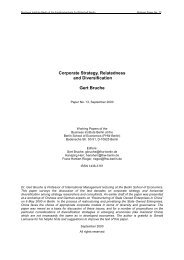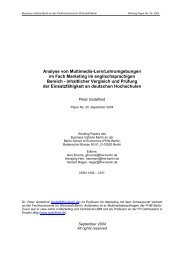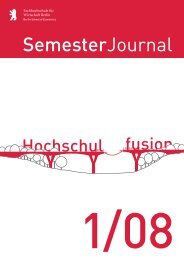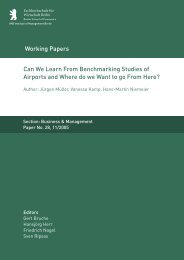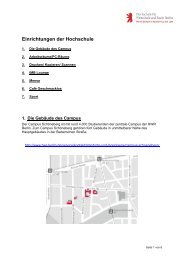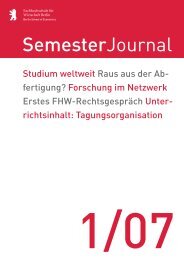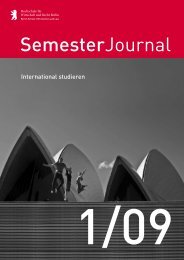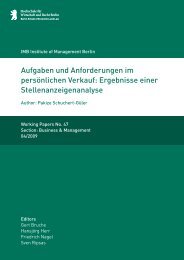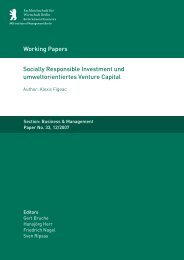Mikrofinanzierungen – Chancen für die Entwicklungspolitik und ...
Mikrofinanzierungen – Chancen für die Entwicklungspolitik und ...
Mikrofinanzierungen – Chancen für die Entwicklungspolitik und ...
Sie wollen auch ein ePaper? Erhöhen Sie die Reichweite Ihrer Titel.
YUMPU macht aus Druck-PDFs automatisch weboptimierte ePaper, die Google liebt.
Institute of Management Berlin (IMB) Working paper No.39<br />
Fachhochschule <strong>für</strong> Wirtschaft Berlin - Berlin School of Economics<br />
Biographic note:<br />
Paul P. Maeser, geboren 1985 in Bremen, stu<strong>die</strong>rte Betriebswirtschaftslehre mit dem Schwerpunkt Bank-<br />
wissenschaften an der Fachhochschule <strong>für</strong> Wirtschaft Berlin. Seine Hauptinteressengebiete sind internatio-<br />
nale Wirtschaftsbeziehungen, <strong>die</strong> Auswirkungen geldpolitischer Eingriffe auf <strong>die</strong> reale Wirtschaft, sowie Ri-<br />
sikosteuerung in Banken <strong>und</strong> Unternehmen. Unter anderem untersuchte er 2006 in New York Möglichkei-<br />
ten zur Absicherung von Risiken in Kreditportfolios. Er erhielt einen Bachelor of Arts von der Berlin School<br />
of Economics <strong>und</strong> arbeitet seit 2008 im Zins- <strong>und</strong> Währungsmanagement bei der Deutsche Bank AG.<br />
Paul P. Maeser, Deutsche Bank AG, Capital Market Sales, Unter den Linden 13/15, 10117 Berlin, Germa-<br />
ny. E-mail: paul.maeser@db.com. Tel.: +49 - 30 - 3407 - 2672<br />
Abstract:<br />
This paper deals with the opportunities of microfinance for developing countries and examines the ne-<br />
cessary framework for a successful implementation of a microcredit program. The study asks what must be<br />
fulfilled in advance in order to make microfinance a valuable support for developing politics.<br />
In addition, the survey compares microfinance to other, more traditional instruments of economic cooperati-<br />
on and demonstrates why a combination of them can be both useful and destructive.<br />
With regard to these findings, two case stu<strong>die</strong>s present practical experience with microfinance institutes<br />
and analyze the projects on their effectiveness.<br />
The research paper infers that microfinance is a useful tool to fight poverty but its possible effects are most-<br />
ly limited on income enhancement and stabilization only, whereas it cannot be expected that a microfinance<br />
strategy alone will lead to, e.g. a women’s empowerment or better educational opportunities. Additionally,<br />
the survey comes to the conclusion that the success of a microfinance program is mostly dependent on sta-<br />
ble prices, the embedment into a coordinated development strategy and so<strong>und</strong> legal conditions, such as<br />
the existence of property rights.<br />
2


